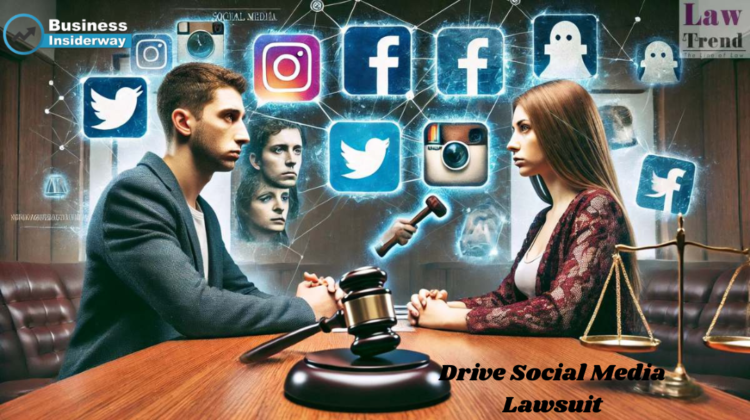The phrase Drive Social Media Lawsuit has captured widespread attention, particularly due to the implications it carries for the social media and digital marketing industries. Lawsuits involving social media companies, agencies, and their partners often center on issues like data misuse, deceptive marketing practices, intellectual property disputes, and breach of contract. This article delves into the background, key issues, legal precedents, and implications associated with the Drive Social Media Lawsuit.
Background of the Drive Social Media Lawsuit
Drive Social Media is a marketing agency known for offering various digital services such as advertising, social media management, and performance analytics for businesses. The lawsuit involving Drive Social Media stems from allegations that potentially impact the agency’s practices or the overall effectiveness of its services.
While specific details about the case vary, such lawsuits generally highlight key concerns about transparency, data security, ethical practices, or contractual obligations between parties involved. Understanding the origins and context of the Drive Social Media Lawsuit helps shed light on the critical areas at stake and the industry norms it may challenge.
Key Issues Highlighted in the Drive Social Media Lawsuit
Data Privacy Concerns
One of the core issues often explored in lawsuits involving social media entities and marketing agencies is data privacy. The Drive Social Media Lawsuit may touch upon concerns related to the collection, use, and sharing of user data. In today’s digital landscape, agencies are expected to handle sensitive data ethically and legally, especially given stricter data protection regulations such as the GDPR in Europe and CCPA in California.
Misleading Advertising Practices
Advertising transparency is another potential area of contention in the Drive Social Media Lawsuit. As a marketing agency, Drive Social Media is likely engaged in running paid campaigns across various platforms. Any claims of misleading advertising, false promises of ROI, or deceptive promotional techniques can serve as grounds for legal action. The outcome of such disputes could redefine advertising standards and shape best practices across the industry.
Breach of Contractual Agreements
Business agreements and contracts are fundamental to the client-agency relationship in the digital marketing space. The Drive Social Media Lawsuit may involve alleged breaches of contractual obligations, such as failure to deliver agreed-upon services, performance metrics, or deadlines. Resolving these disputes typically involves a detailed examination of contract terms, performance standards, and documented evidence.
Legal Precedents and Their Influence on the Drive Social Media Lawsuit
Noteworthy Cases in Digital Marketing
The Drive Social Media Lawsuit is not an isolated occurrence in the realm of digital marketing litigation. In recent years, several lawsuits have emerged concerning social media companies, marketing agencies, and influencers. For example, cases involving false claims by influencers or unauthorized use of copyrighted material in online ads have attracted considerable media attention and legal scrutiny.
Intellectual Property Disputes
Intellectual property (IP) is often a point of contention in lawsuits involving marketing agencies. This may include the misuse of images, branded content, or proprietary software in campaigns managed by agencies like Drive Social Media. IP disputes can set important legal precedents, serving as a reference for future cases involving copyright infringement or brand misrepresentation.
Compliance with Advertising Regulations
The Federal Trade Commission (FTC) and similar bodies globally play a vital role in regulating advertising practices. Lawsuits brought against marketing agencies for deceptive marketing practices often reference FTC guidelines. In the context of the Drive Social Media Lawsuit, adherence to these regulations—or a lack thereof—could influence the case’s outcome and provide direction for ethical advertising within the industry.
Implications of the Drive Social Media Lawsuit on the Industry
Setting New Industry Standards
The Drive Social Media Lawsuit may lead to the establishment of new standards for transparency, contractual compliance, and data protection within the marketing sector. Companies may be prompted to review their practices and ensure they align with legal norms to avoid similar legal pitfalls.
Greater Accountability for Agencies
Agencies must maintain trust and credibility by adhering to ethical business practices. Lawsuits like the Drive Social Media case can serve as a wake-up call, highlighting the need for accountability, clear communication, and stringent contract management within agency-client relationships.
Changes in Data Handling Protocols
If the lawsuit brings data handling practices into question, it could prompt marketing agencies and social media platforms to reassess their data collection, storage, and usage policies. Compliance with data protection laws and heightened security protocols may become an industry priority, fostering a safer and more trustworthy digital ecosystem.
The Legal Path Forward for Drive Social Media
Navigating a lawsuit is a complex process that can significantly impact the reputation and operations of any agency. Drive Social Media will need to defend its practices, address potential breaches, and collaborate with legal experts to present a compelling case. In turn, the plaintiffs (clients, regulatory bodies, or partners) involved in the lawsuit will strive to substantiate their claims with evidence and testimony.
Potential Outcomes of the Drive Social Media Lawsuit
Settlement Agreements
Many lawsuits involving marketing agencies are resolved through settlement agreements, where both parties agree to certain terms, such as financial compensation or revised contract terms, to avoid prolonged litigation. The Drive Social Media Lawsuit may follow a similar route, leading to a mutually beneficial resolution.
Judicial Rulings and Their Ramifications
If the lawsuit proceeds to court, the outcome could shape industry practices through judicial rulings that clarify or redefine aspects of marketing, data management, or advertising. The court’s decision will likely be scrutinized by industry experts, setting a legal precedent with long-lasting implications.
Conclusion
The Drive Social Media Lawsuit underscores the challenges and complexities faced by agencies operating in the fast-paced world of digital marketing. From data privacy and advertising practices to contractual obligations, the case highlights key issues that could reshape industry standards. As the lawsuit unfolds, its impact on Drive Social Media and the broader digital marketing landscape will continue to be closely watched, serving as a reminder of the need for transparency, ethical behavior, and legal compliance in all aspects of online marketing.














